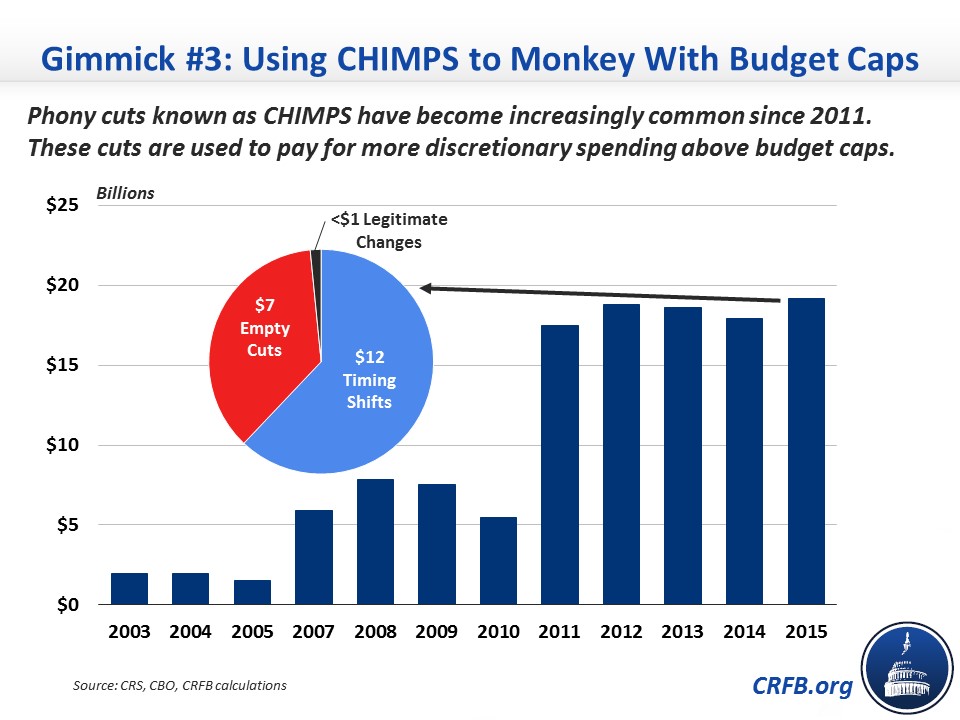Senate Budget Committee Reports Crime Victims Fund Legislation
Last week, the Senate Budget Committee passed a bill to limit the use of the Crime Victims Fund (CVF) as a back-door method to increase appropriations. The bill, S. 1495, is sponsored by Senator Pat Toomey (R-PA). It creates a point of order against appropriations bills containing a Change in Mandatory Program (CHIMP) that would cause the amount available to be spent from the CVF to be less than the 3-year average of incoming funds.
A similar measure was proposed in this month's markup of the Senate's Commerce, Justice, and Science appropriations bill by Senator James Lankford (R-OK). He proposed an amendment that would have prevented further use of these specific CHIMP funds in the bill after FY 2016, but it was defeated in committee.
As we explained in our blog, CHIMPs are provisions in appropriation bills making changes (usually reductions) in mandatory spending programs. The savings are then available to be used to offset increases in discretionary spending above the spending cap. This can be perfectly acceptable when the savings created are real, but lawmakers often use fake savings to fund real increases in spending.
The Crime Victims Fund is a frequently used source of CHIMPs: according to CBO over half of the $19 billion in CHIMPs from FY 2015 came from the CVF.
To combat gimmickry, the Senate budget included a phasedown and eventual elimination of CHIMPs that saved no actual money. And during markup of the Senate budget, the Budget Committee adopted an amendment by Senator Mike Crapo (R-ID) that would have created a point of order against CHIMPs originating from the CVF. Senator Toomey’s bill forces CVF payouts to equal recent incoming funds, which essentially creates a cap of $10.5 billion in CHIMPs from the CVF, preventing the size of the CVF CHIMPs from growing.
The Crapo amendment and the Senate budget's phase out of fake CHIMPs were removed and watered down, respectively, during the conference process. We disapproved of the watering down of the Senate budget’s provision during conference but still appreciated the CHIMP limits, in some form, made it into the conference agreement. During the conference process, appropriators argued they needed the CHIMPs gimmick to live within the discretionary spending caps.
Nonetheless, using CHIMPs without actual outlay savings to increase appropriations is a gimmick that actually adds to the deficit. We highlighted the CHIMPs gimmick in our "Avoiding Budget Gimmicks" chartbook and warned policymakers to watch out for it in our "Four Gimmicks to Watch Out For" one-pager this year. CRFB's Better Budget Project Initiative also highlighted this gimmick in its report entitled "Strengthening Statutory Budget Enforcement."

If policymakers feel the discretionary caps are too tight, they should following the suggestion in "Strengthening Statutory Budget Enforcement." Raising discretionary spending caps should be paid for with real savings, and further limits on the CHIMPs gimmick should be in place rather than continuing to game the current caps. Having a less strict but much more honest enforcement regime would be better for appropriations and the budget.

